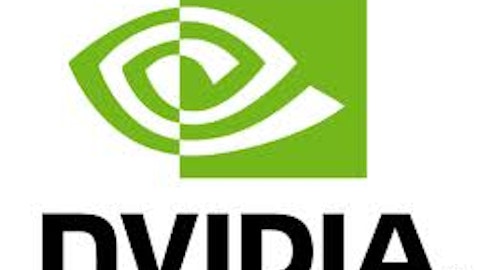
The good news is you don´t really need those forecasts to do well in the markets in the long term. Even if interest rates are moving up, companies with strong fundamentals and growing dividends offer enough quality to continue delivering value for shareholders while allowing them to sleep smoothly at night without worrying much about their investments.
Besides, the tech industry should be a smart place to seek refuge in a time of rising interest rates. The tech business is notoriously cyclical, if rates are rising, this should mean that the economy is strong and demand is looking good for tech companies. At the end of the day, there’s nothing like growing cash flows and dividends to successfully sail through rising interest rate fears.
International Business Machines Corp. (NYSE:IBM)
International Business Machines Corp. (NYSE:IBM) is arguably the most mature company in the tech industry. Management made a smart decision to move away from hardware and into high value added services and software back in the nineties, and this has worked wonders for the company´s competitive strength and profitability over the last decades.
International Business Machines Corp. (NYSE:IBM) may not be the most exciting growth play in tech, but it has an amazing capital distribution program including both growing dividends and share buybacks. Since 2000, International Business Machines Corp. (NYSE:IBM) has returned over $150 billion to shareholders in the form of dividends and share repurchases, considering that the current market cap is around $219 billion, investors should receive a nice return for their money as long as the company sustains its generous distribution program.
The current dividend yield around 1.9% doesn´t look particularly high, but we need to consider the soundness and growth trajectory of those dividends. International Business Machines Corp. (NYSE:IBM) has consecutively increased dividend distributions in each of the last 18 years, including a 12% rise for 2013. If that weren´t enough, the company´s payout ratio is only 23% of earnings, which means that International Business Machines Corp. (NYSE:IBM) has ample room to continue raising payments for years to come.
QUALCOMM, Inc. (NASDAQ:QCOM)
While device manufactures like Apple and Samsung fight each other for market share in tablets and smartphones, investors in QUALCOMM, Inc. (NASDAQ:QCOM) don´t need to worry much about that competition since the company is a major supplier of chips and technologies for the dominant players in the industry, including of course both Apple and Samsung.
Mobile computing is still booming, especially in emerging markets, and QUALCOMM, Inc. (NASDAQ:QCOM) is in an enviable position to capitalize on that growth as an undisputed leader in its industry. Besides, the company will benefit from the transition towards 4G/LTE over the next years: Many smartphones and tablets need be compatible with 4 G/LTE and 3G at the same time, the transition process is still in its first stage and products need to offer adaptability. This means that QUALCOMM, Inc. (NASDAQ:QCOM) will continue making money from both its 3G and 4G/LTE patents for quite some time.
The company gave a big boost to its dividend in March of this year, when it announced a 40% increase in dividend payments, bringing the annual dividend payout to $1.40 per share which means a dividend yield of around 2.3% at current prices. With a payout near 28% of earnings and strong growth prospects for those earnings too, investors in QUALCOMM, Inc. (NASDAQ:QCOM) have good reasons to expect higher dividends in the future.

Cisco Systems, Inc. (NASDAQ:CSCO)
Being the leading supplier of data networking equipment and software, Cisco Systems, Inc. (NASDAQ:CSCO) is in the right place to benefit from growing connectivity needs on a global scale. The company is also expanding into promising growth areas like software designed data centers, and it has the scale advantage and brand reputation to capitalize on the opportunities that may emerge in the future.
Online traffic is growing at an amazing speed as more people all over the world are gaining access to high-quality internet connection, especially in emerging countries. Besides, the mobile computing boom brings connectivity demands to a whole new level as users become engaged via multiple devices, practically anywhere and at any time. In addition to that, voice, video and data are increasingly demanding when it comes to traffic needs.
Furthermore, its 2.8% dividend yield is looking quite strong in terms of growth prospects. Management has committed to return 50% of free cash flow to shareholders on an annual basis, and the company has more than $47 billion in balance sheet cash. Coupled with strong secular tailwinds supporting earnings growth, this means that Cisco Systems, Inc. (NASDAQ:CSCO) will most likely continue increasing dividends over the next years.

Bottom line
Trying to time the markets by forecasting interest rates is a loser´s game. Instead of that, investors should better focus on buying high quality companies with strong fundamentals and growing dividend payments. Long term investing should be based on durable factors, and these three tech leaders are well positioned to outperform in the long term.
The article Forget About Rising Interest Rates With Growing Tech Dividends originally appeared on Fool.com and is written by Andrés Cardenal.
Andrés Cardenal owns shares of IBM and Qualcomm. The Motley Fool recommends Cisco Systems (NASDAQ:CSCO). The Motley Fool owns shares of International Business Machines (NYSE:IBM). and Qualcomm. Andrés is a member of The Motley Fool Blog Network — entries represent the personal opinion of the blogger and are not formally edited.
Copyright © 1995 – 2013 The Motley Fool, LLC. All rights reserved. The Motley Fool has a disclosure policy.





